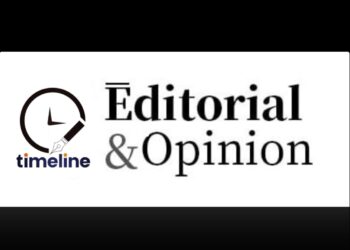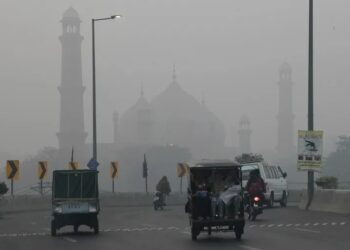Written By: Abdul Basit Alvi
Loyalty and patriotism are intertwined values that guide political leadership. Loyalty ensures that politicians remain devoted to the nation’s core values, while patriotism provides the moral and emotional drive to act in the country’s best interest. Together, these principles enable politicians to make decisions that benefit the nation, rather than their party or personal ambitions. A loyal and patriotic politician resists external pressures, such as foreign interference or corrupt lobbying, prioritizing the nation’s security, economy, and values above personal or partisan gain. They champion policies that promote social justice, national security, and international cooperation, with the nation’s long-term well-being as their focus.
The role of loyalty and patriotism in politics goes beyond personal behavior, directly influencing public trust and political stability. When politicians demonstrate loyalty and patriotism, citizens are more likely to trust their leadership, believing the government is acting in their best interest. In times of political turmoil or social unrest, politicians who embody these values offer strength, direction, and hope for the future. By putting the nation above personal or party agendas, they inspire confidence in the government and help restore national unity.
The defining trait of loyal and patriotic politicians is their ability to prioritize the common good over personal gain. In a political world often dominated by power struggles and individual ambition, there are those who rise above self-interest to serve the people. Nelson Mandela’s journey from prisoner to president epitomizes the sacrifice of personal ambition for the collective well-being of a nation. After enduring 27 years of imprisonment for opposing apartheid, Mandela emerged not with a desire for political revenge but with a vision of reconciliation and unity. As South Africa’s first black president, his primary goal was to dismantle apartheid and secure equal rights for all citizens, regardless of race. Despite the personal toll of imprisonment and the political risks in a post-apartheid South Africa, Mandela displayed extraordinary courage and selflessness. His decision to step down after one term as president was a powerful expression of patriotism. He believed that genuine democracy demanded the rotation of leadership, rather than the accumulation of personal power, ensuring the political system stayed centered on the people’s needs rather than individual ambitions. George Washington, the first president of the United States, exemplified exceptional patriotism by putting the nation’s welfare above personal power. After the American Revolution, Washington was widely regarded as a natural candidate for a monarch, but he declined such offers, choosing instead to prioritize the creation of a democratic republic. Washington’s decision to step down after two terms in office and his refusal to consolidate power set an essential precedent in American politics: the peaceful transition of power. At the time, the United States was still fragile, and Washington’s selflessness helped ensure that the nation would be founded on democratic principles and freedom, rather than personal ambition. His actions were a testament to his deep loyalty to his country and its future.
Winston Churchill’s leadership during World War II was similarly marked by an unwavering sense of duty to Britain and its people. When Churchill became Prime Minister in 1940, Britain was on the brink of defeat by Nazi Germany. Despite being an unpopular figure at the time and having faced political setbacks in the past, Churchill put aside personal ambitions and focused solely on his country’s survival. He made tough decisions, including rallying the British public to resist the Nazis when defeat seemed inevitable. Churchill’s dedication to national survival came at a personal cost, as his political career suffered after the war. Yet, his patriotism and loyalty to the British people never faltered, and he always placed the nation’s needs above his own political future.
Kim Dae-jung, former president of South Korea, showed remarkable loyalty to his people during the nation’s struggle for democracy. Known as the “Nelson Mandela of Korea,” Kim spent years resisting military dictatorship and advocating for the rights of South Koreans. He was imprisoned multiple times, exiled, and even survived an assassination attempt. Despite enduring personal hardships, Kim remained committed to democratic reforms. His dedication to peace was evident in his “Sunshine Policy” with North Korea, which emphasized dialogue and cooperation rather than military conflict. Kim’s decisions often came at great political risk, including opposition from hard-liners, but his goal was always to improve the lives of his people and ease tensions on the Korean Peninsula. Unfortunately, such qualities are often lacking in many Pakistani politicians, who tend to prioritize personal interests over the well-being of the people.
Civil disobedience has long been a tool for challenging unjust laws and advocating for human rights, with figures like Martin Luther King Jr. leading movements that transformed nations. However, when politicians entrusted with power by their citizens resort to civil disobedience or encourage such actions, it can have a detrimental effect on the country. Civil disobedience becomes problematic when political leaders, who should be guiding through established democratic processes, call for or engage in such actions themselves. In these cases, politicians who partake in or promote civil disobedience risk betraying their country, weakening democratic institutions, and undermining public trust. In any democratic system, politicians are chosen to represent the people, uphold the law, and operate within the established governance framework. Their responsibility is to implement policies that promote the public good, ensuring fairness, justice, and the safeguarding of rights. They are granted authority to create laws, resolve disputes, and oversee national matters. Consequently, their role is a distinctive one—requiring them to lead by example and address challenges through legal and institutional channels. Politicians are expected to address grievances and public concerns through legislative processes, open dialogue, and policy reforms. When a politician encourages or actively participates in civil disobedience, they bypass the democratic system and the institutions they are meant to uphold. This raises doubts about their commitment to the rule of law and the stability of the political system they are responsible for leading. While civil disobedience can be a powerful and morally justified tool for individuals who feel they have no other option, it becomes problematic when politicians, who are entrusted with the responsibility of leading the country, use it to advance their own agendas or express personal grievances. In such cases, their actions can be viewed as political betrayal for several reasons. Democracy depends on processes such as voting, debate, negotiation, and compromise. Politicians are expected to work within these frameworks to resolve issues and enact change. When they engage in civil disobedience, they circumvent these democratic processes and neglect the responsibilities they have been given by the electorate. Their role is to represent the people’s will through legislative actions, not by fostering disruptive behavior that undermines the very systems they were elected to protect. This weakens the legitimacy of the democratic process and diminishes public trust in political institutions.
Politicians are supposed to be leaders who unite the country, particularly in times of crisis or division. However, when they engage in or encourage civil disobedience, they risk deepening existing divisions and causing instability. Politicians who take this route may contribute to an atmosphere of chaos and unrest, alienating both their supporters and opponents. Their actions can incite violence, disrupt public services, and fracture national unity. In this way, politicians engaging in civil disobedience do not heal social wounds but exacerbate polarization.
By engaging in civil disobedience, politicians set a dangerous precedent, suggesting that it is acceptable to disregard the rule of law when it serves personal or political interests. This weakens public trust in both the political system and the rule of law. Citizens rely on their leaders for stability, guidance, and justice. When these leaders defy the very system they are meant to protect, it sends the message that laws and institutions are not worth respecting, ultimately eroding public confidence in the government and democracy. Institutions—such as the judiciary, legislature, and law enforcement—form the foundation of any functioning democracy. Politicians who promote civil disobedience weaken these institutions by signaling that they are unnecessary or can be bypassed when individuals disagree with them. This erosion of institutional strength can have lasting effects. Once the public begins to see institutions as ineffective or unworthy of respect, restoring confidence in the system becomes much more difficult. A weakened system is unable to effectively meet the needs of the people, and the country risks falling into political instability.
Politicians are elected to solve problems, not create more. By advocating for civil disobedience, they may divert attention away from more constructive solutions that could address the issues at hand. Instead of working through legal and institutional channels to bring about meaningful change, politicians who resort to civil disobedience may simply amplify division and noise, preventing the resolution of critical issues. The public’s attention shifts from addressing core problems to the spectacle of civil disobedience, which may hinder meaningful policy discussions or solutions.
In the context of Pakistan, Imran Khan, the cricketer-turned-politician who emerged with promises of change, justice, and anti-corruption reforms, has faced significant controversy in recent years. Despite his significant popularity as the leader of Pakistan Tehreek-e-Insaf (PTI), Khan’s actions and statements in both domestic and international politics have frequently drawn criticism, with many accusing him of jeopardizing Pakistan’s interests. Allegations of anti-Pakistan actions have been directed at him, sparking concerns about his conduct and motivations. These criticisms largely stem from his political strategies, foreign policy positions, and domestic decisions, which critics argue may undermine Pakistan’s sovereignty, stability, and international relations. Imran Khan’s relationship with Pakistan’s military, a dominant institution in the country, has been a source of controversy throughout his political career. Initially aligning himself with the military establishment, Khan later faced accusations that his political actions were undermining the country’s most powerful institution. His frequent criticism of the military leadership, particularly during his tenure as Prime Minister (2018–2022), attracted attention. In several public speeches, Khan suggested that the military was interfering in political affairs, raising concerns about the military’s role in domestic governance. Critics argued that such statements were dangerous, as they could deepen divisions within the country’s power structure and weaken national unity. Furthermore, Khan’s refusal to support the military on certain national and international issues, such as sensitive relations with neighboring countries, fueled perceptions that he was pushing an anti-Pakistan agenda. He also wrongly claimed that his government had been pressured to align with military interests.
Khan’s time as prime minister was also marked by increasing tension with Pakistan’s judiciary. His strained relationship with the judiciary became especially evident when high-profile cases involving his government or party members emerged. Khan’s statements and actions, particularly when judicial decisions conflicted with his political interests, led many to accuse him of undermining the legal system. For example, Khan’s criticisms of the judiciary during politically sensitive cases were seen by many as an attack on the independence of Pakistan’s judicial system. After his government was ousted in 2022 through a no-confidence motion, Khan accused the judiciary of complicity in his removal, calling the legal system “biased” and “unjust.” Critics viewed this rhetoric as an attempt to delegitimize the judiciary, fostering distrust in one of Pakistan’s vital democratic institutions. In their view, Khan’s attacks on the judiciary, combined with his populist rhetoric, posed a threat to the rule of law in Pakistan and endangered the country’s democratic principles.
Khan also faced significant criticism over his handling of Pakistan’s foreign relations. His policy on international relations, especially with the United States, India, and Afghanistan, was often regarded as controversial and inconsistent. Khan’s criticism of U.S. policies, particularly regarding the Afghan conflict, led some to believe that his anti-Western stance could alienate Pakistan from crucial international allies and donors. Khan consistently opposed U.S. influence in Pakistan’s domestic affairs and military operations, accusing the U.S. of meddling in Pakistan’s politics and distorting the country’s interests. His repeated claims of U.S. involvement in the removal of his government following the 2022 no-confidence vote were perceived by critics as an irresponsible attempt to damage Pakistan’s relationship with a key global power, potentially threatening Pakistan’s geopolitical interests.
Additionally, Khan was accused of politicizing national institutions such as the police, bureaucracy, and even the military. Concerns grew under his leadership about the use of state machinery to settle political scores and advance PTI’s agenda. Critics argued that Khan’s approach was damaging to the integrity of these institutions and to the functioning of the state as a whole. From manipulating government appointments to using law enforcement to suppress political opponents, these actions were seen as part of a broader strategy to consolidate power at the expense of democratic principles. One of the most damaging instances of this politicization was his alleged role in undermining the neutrality of Pakistan’s Election Commission. Khan’s accusations of election rigging by opposition parties and claims that his political rivals were sabotaging the democratic process, despite lacking evidence, contributed to the perception of him as a leader willing to weaken democratic institutions for personal gain. These tactics led many to believe that Khan’s government was trying to manipulate the democratic process to ensure his own political survival. After his removal in 2022, Imran Khan began promoting the notion that his ousting was the result of a “foreign conspiracy” led by the United States, with the backing of Pakistan’s military and opposition parties. He claimed that his independent foreign policy, particularly his positions on Afghanistan and U.S. influence in the region, had provoked this alleged plot against his government. His vocal accusations against the U.S. and military, coupled with his assertions of widespread foreign interference, were perceived by many as attempts to deflect responsibility for his administration’s shortcomings. Critics and experts argued that such rhetoric could damage Pakistan’s relations with Western nations and exacerbate unnecessary diplomatic tensions. The anti-Western narrative pushed by Khan was seen as a dangerous diversion from more urgent domestic concerns, such as economic difficulties and political instability.
During Khan’s tenure, Pakistan faced significant economic challenges, including high inflation, escalating debt, and depleting foreign reserves. Critics argued that his government’s economic policies, particularly regarding inflation management and external debt, were ineffective. His failure to adequately address these issues distanced Pakistan from international financial institutions, leading to credit downgrades and strained economic relations. Khan’s economic mismanagement further weakened the country’s financial position, making it more vulnerable to external pressures from international creditors. These economic problems, combined with growing domestic political unrest, led to claims that Khan’s leadership harmed Pakistan’s long-term economic stability.
A central issue throughout Khan’s tenure was his tendency to prioritize personal interests over the state’s welfare. Examples such as the 2014 Dharna, the Cypher drama, his letter to the IMF, and the events of May 9 and November 24-26, illustrate how his personal gains often took precedence over national concerns. Recently, Khan reignited controversy by urging overseas Pakistanis to withhold remittances to Pakistan, further fueling debates about the potential impact on the country’s economy, foreign relations, and political climate. This move, aimed at pressuring the current government, has raised concerns about its long-term effects and whether it will achieve its intended objectives.
Remittances, which have long been a crucial source of foreign exchange for Pakistan, play a vital role in stabilizing the economy, especially during times of crisis. In 2023, remittances from overseas Pakistanis amounted to approximately $30 billion, making them one of the largest sources of foreign currency for the country. These funds are not only crucial for Pakistan’s foreign reserves but also provide essential support for millions of families across the nation, contributing to poverty alleviation, healthcare, education, and infrastructure development. For many Pakistanis living abroad, sending money back home is a means of supporting loved ones and communities, making Khan’s call to withhold remittances a controversial and potentially damaging move for both the economy and national unity. These remittances are crucial for the survival of millions, and any significant reduction in their flow could result in severe hardship for the most vulnerable segments of society. In this context, Khan’s call could have a profound effect on the daily lives of many Pakistanis. Imran Khan has framed his request to withhold remittances as a strategy to pressure the current government. By urging overseas Pakistanis to withhold remittances, Khan is attempting to exert economic pressure. However, critics argue that this move could backfire, both economically and politically. While it may cause temporary discomfort for the government, it could have severe consequences for ordinary citizens who depend on remittances. Moreover, withholding remittances could damage the relationship between the Pakistani diaspora and their home country, potentially alienating a crucial constituency that has long supported Khan’s party, both politically and financially. The fallout could deepen political divisions, further polarizing the nation and making it even harder to find common ground to address the country’s challenges.
Khan’s call could also strain Pakistan’s relations with countries where millions of Pakistanis work, such as the Gulf States, the United Kingdom, the United States, and Canada. Encouraging workers to stop sending money home may be perceived by these nations as politically motivated or destabilizing. Although remittances are primarily private transactions, the political undertone of this request could lead to diplomatic tensions, particularly if the Pakistani diaspora feels the government is antagonistic toward their financial support. In an already volatile geopolitical environment, this strategy could create unnecessary friction that Pakistan can ill afford.
Economically, a reduction in remittances would worsen Pakistan’s already precarious financial situation. The country is struggling with a significant trade deficit, foreign debt obligations, and soaring inflation. A decrease in remittances would likely worsen currency depreciation and further deplete foreign exchange reserves, potentially leading to more austerity measures, higher taxes, and cuts in public spending. During negotiations with the International Monetary Fund (IMF) and other international financial institutions for aid and loans, a reduction in remittances could complicate Pakistan’s ability to meet financial obligations and hinder much-needed economic reforms.
His call reflects a lack of regard for the nation’s well-being, with his actions being viewed as self-serving rather than in the national interest. The Pakistani people and diaspora have consistently demonstrated their loyalty and patriotism, prioritizing the country’s interests over those of any political leader. The Pakistani diaspora, in particular, has distanced itself from this call for civil disobedience, considering it an anti-state action. This sentiment is reflected in the 31% increase in remittances sent to Pakistan in 2024. From January to November 2024, overseas Pakistanis sent $21.5 billion, with Saudi Arabia contributing the largest share at $7.29 billion, a 38.7% increase from the previous year. Pakistanis in the UAE sent $6.15 billion, up 55% from last year, while those in the UK sent $4.71 billion. Overseas Pakistanis sent $3.61 billion from the European Union and $3.44 billion from the United States to Pakistan. In addition to Saudi Arabia and the UAE, other Gulf countries contributed $3.17 billion in remittances to Pakistan, while Australia and Malaysia also emerged as key destinations for Pakistani job seekers abroad.
Despite the malicious efforts of our enemies and some anti-state elements, Pakistan’s economy is continuing to grow and improve. The Pakistan Stock Exchange experienced a significant surge on the last trading day of 2024, with the 100 index rising by more than 3,900 points. By the close of trading, the 100 index stood at 115,259 points, an increase of 3,907 points. During the day, the highest point reached by the 100 index was 115,422 points. A total of 1.05 billion shares were traded, valued at Rs 40.88 billion, while the market capitalization rose by Rs 432 billion to reach Rs 14,558 billion. Throughout the trading session, the 100 index fluctuated within a range of 1,796 points, with 81.5 crore shares traded worth Rs 32.9 billion. The market capitalization saw an increase of Rs 112 billion, settling at Rs 14,126 billion.
The economic and trade performance demonstrates that investors have strong confidence in the initiatives taken by the government and the Army Chief to improve the economy and create a favorable environment for growth. The Pakistani diaspora remains loyal and patriotic, fully rejecting this harmful call for civil disobedience. The people of Pakistan stand united against those who seek to undermine the nation for personal political gain.

























